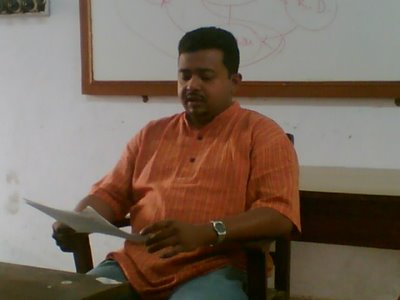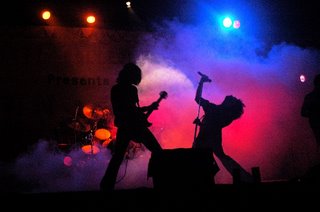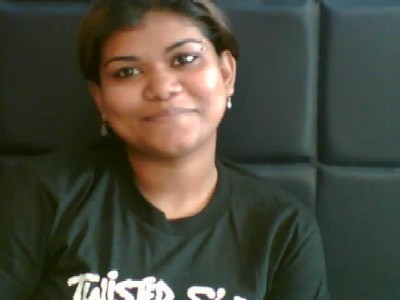
It took Presidency College fourteen months to decide on him, but it took only forty minutes for me to realize why. He was nervous, almost naïve, the day when he first took our class after being appointed as a part-time lecturer in the department. And I was as cheeky as I could get. I remember staring fixedly at him, until he taught looking at the entire class except for me. Sweating profusely, he took swigs out of his mineral water bottle every two minutes; it wasn’t that hot though, except if you count him being the only man in a class of nineteen smoky women. That was him on the first day we met him.
Later, he left without even a glance. It didn’t matter though, because it was only a matter of time before he became ‘one of us’. He was christened into the group-of-the-damned, and doubtlessly after a few months of the finest unadulterated friendship, he was somehow banned from the college. Now, I’m not being entirely honest. I knew why. In fact, all of us knew why. But we just didn’t talk about it. We still don’t.
We used to spend half our day in his cabin, the rest being spent in the canteen or around it. Of course that didn’t go too well with the other professors: did we care? NAH!!! He was perhaps the best thing that happened to us, till date, and we weren’t going to let go that easy. Anyway, so I remember one afternoon he was supposed to be teaching us Emile Durkheim’s take on Religion; it was a tough little bit of the syllabus. But as usual, we turned up, not just late but heavily sloshed, and I stoned with a strange hangover of smoking an isspecial Presi-pot. But we ever missed any of his classes, so despite the flying ‘tweeties’ around my head and my all classmates looking like my ex-school principal, I got to his class…and I spoke…they later told me I was trying to tell him to let us off a bit earlier but all I managed to say was: “willapleejletuzgoarlleee” and smile…and he had taken more gulps of his mineral water and had asked why so, and then my reply had been: “You know, thatsa verryverry naughty question!”. He had no choice but to return to the lesson for the next few minutes till he could still teach, that is before we dozed off. The next day, he’d given us a briefing about handling immediate hangovers, especially in class. That was him after we had screwed up in his class.
Then, there was the day I met him to discuss my research paper and ended up in China Bistro sharing lasagna and pasta with him, of course after three rounds of iced tea in the coffee shop. He didn’t have his mineral water bottle that day, and every time we’d talk about things that’d make him want to take a swig, we’d order more iced tea. It was kind of crazy at the start, but we talked and talked and talked…and I talked so much I bet I would have weighed a bit lighter after that. I really ‘felt’ lighter, I felt less crammed up in my head, like I’d just written down a lot in the diary, maybe I felt I had a friend. That was him after a nice and hefty meal of lasagnas and pastas.
There were afternoons when we’d nick classes spending time in the canteen, all our heads glued together, huddled in a corner, talking in hushed excited voices…and he’d come right into it and join. And we’d just take him in, and brief him, and continue. And then there were the actual lessons we’d get from him, sometimes in coffee shops, or in the portico, or even at my place: where we’d all come together for an afternoon of highly serious discussions of Weber, or Durkheim, or Spencer along with rounds of ‘prawn pakora’ and chilled Coke. That was him as the friend who also happened to be a professor.
Then he fell in love. We were all delighted, and declared ‘party’ when he told us, he was leaving us. And then before we could realize the bare brutality of that, he left…and left with us moments, memories and a signature “Handloom Emporium” folio bag for each. And his heart with one of us…or perhaps a bit with each of us. I don’t know how much he is where he is, because he is so much here, with us…in our actions, thoughts, and even ideas. That is him, our AD. Alekhya Das, Ex Part-Time Lecturer, Department of Sociology, Presidency College Kolkata.











